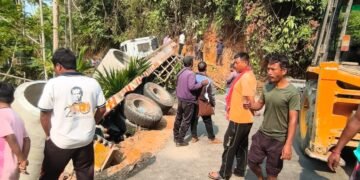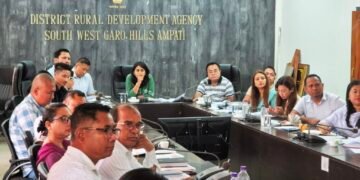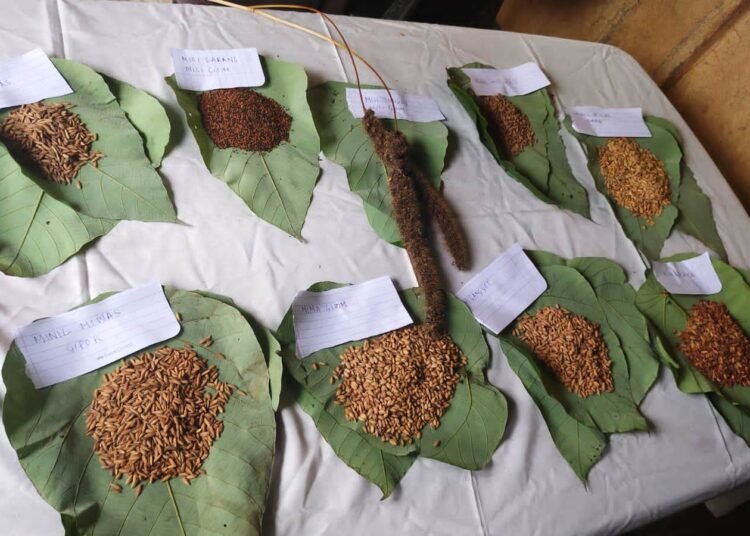Cabinet minister James PK Sangma initiated a community seedbank project today for the preservation and promotion of a 6,000-year-old rice species in Sadolpara, West Garo Hills.
Partnering with NESFAS and the ELP Foundation, Sangma said the idea of the project was also to understand scope for further research and development of the rice species so that large scale cultivation could be made possible with the help of local communities.
“Dramatic changes are happening to our biodiversity today due to climate change. In such situations, it becomes important to identify and preserve such rice species because they are climate-resilient and therefore, a dependable source of food,” Sangma said. “As of now, most of our rice comes from states like Andhra Pradesh, which also bears a significant cost to our state. As the Sadolpara species has withstood the test of time, it is both nutritionally and economically beneficial for Meghalaya.”
The species is currently found on the hill slopes of Sadolpara and is not resource-intensive to grow as compared to usual paddy, which requires submergence in large volumes of water.
The species was first promoted by the International Fund for Agricultural Development (IFAD) through a documentary in 2003 made in collaboration with celebrated filmmaker Mira Nair entitled ‘Still, the Children are Here.’
However, ever since then, no significant steps were taken to bring the species to prominence.
“It will be very meaningful to have a rice-centric seedbank at Sadolpara because of its historic significance dating back to the Sumerian civilization. There are 17 varieties of rice at present in Sadolpara village, out of which seven have unfortunately disappeared over the years. Efforts will be made to interact with other neighbouring villages to bring back those that have been lost and have all the 17 species. It is our bid to preserve the seeds physically along with the traditional knowledge embedded within these seed varieties,” the minister said.
“We are solely dependent on the farming of these rice species and despite requests for nearly two decades, no initiatives were taken here. We are happy that finally someone is taking active steps to give us the recognition we were deserving of for years,” a local farmer said.

























